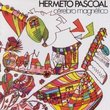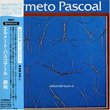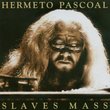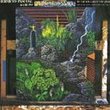| All Artists: Cesar Guerra-Peixe, Madeiras, Boteloh, Tavares Title: Symphonic Suite 2 Members Wishing: 0 Total Copies: 0 Label: Soarmec / Radio Mec Classics Release Date: 4/4/2000 Album Type: Import Genres: International Music, Jazz, Pop, R&B, Classical, Latin Music Styles: South & Central America, Brazil, Latin Music, Samba, Brazilian Jazz, Latin Jazz, Vocal Jazz, Vocal Pop, Soul, Chamber Music, Forms & Genres, Concertos, Symphonies Number of Discs: 1 SwapaCD Credits: 1 UPC: 800488001427 |
Search - Cesar Guerra-Peixe, Madeiras, Boteloh :: Symphonic Suite 2
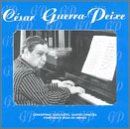 | Cesar Guerra-Peixe, Madeiras, Boteloh Symphonic Suite 2 Genres: International Music, Jazz, Pop, R&B, Classical, Latin Music
|
Larger Image |
CD DetailsSimilar CDs
|
CD ReviewsHermeto Pascoal-the legacy continues R. Moore | New Orleans, LA USA | 08/22/2004 (5 out of 5 stars) "This 2002 release was the first from Hermeto's 'Grupo' after a 10 year recording hiatus. The Grupo here is Hermeto, Fabio Pascoal (perc), Alexandre Marques (piano), Itiberê Zwarg (bass), Marcio Bahia (drums), and Vinícius Dorin (sax/flute). Also featured are members of Itiberê's 'Orquestra Família'(their first recording 'Pedra do Espia' is available here at Amazon), delivering incredible performances of fourteen tunes, each named for one of Pascoal's grandchildren. The music here is fresh, challenging, and inspiring; everything you would expect from 'O Bruxo'. The musicianship is virtuostic; especially from the 'Orquestra' members, none of whom is over 25 years of age! This, along with all the great musicians to have passed through Hermeto's tutelage, is Hermeto's legacy; his 'Universal Music' will live and grow forever. A must for any Hermeto collection; and required listening for jazz fans who want to discover contemporary Brazilian improvised music." Check Him Out! Jeff Hodges | Denton, TX United States | 07/14/2006 (5 out of 5 stars) "I was exposed to Hermeto Pascoal's "Mundo Verde Esperança" while taking a class on Global Jazz. His music immediately appealed to me, not because I "got it", but because I had a reference for it. Sonically, his music reminded me of some of my favorite 70's fusion work. Bill Bruford's early solo material circa "Master Strokes" came to mind, as did some of Gentle Giant's instrumental work, but most strongly the reference I had (and still have) for Mundo Verde Esperança was Frank Zappa's instrumental work from the 70's. Hermeto's compositional use of angularly extended melodies, his comfort with speech-related rhythms, and his overall choice of instrumentation brought to mind Zappa's work on "Hot Rats", "Waka/Jawaka", and "The Grand Wazoo". However, this similarity does not seem referential, but coincidental. While much can be found on the internet about Hermeto, for the limited purposes of an initial Amazon review, I find his formative years particularly compelling. In particular, it is interesting to consider the way that his path (which in some ways was diametrically opposite to Zappa's) came to produce such an immediately recognizable similarity. Hermeto showed prodigious strength as a musician very early. His father exposed him to music on the 8-button accordion, at which he immediately excelled. However, his most important musical influences were even less formal. During the day, when most of his family was working in the sun, his albino condition forced him to take shade. To occupy himself during this time, he would experiment with found objects, creating new musical instruments to musically dialogue with his environment. The sounds of nature proved to be a profound influence on him, and he came to view all sounds as inherently musical. This perspective would affect his music as he continued his training, learning to formally read and write music later in life. Eventually, he evolved into a compelling and respected composer and multi-instrumentalist. This self-directed and organic musical pedagogy that was closely tied to the sounds of nature lies in direct opposition to Zappa's distinctively Western technologically-based evolution. However, the end results yield compelling post-modern similarities. The "found" objects that influenced Zappas were pieces of recorded tape, whether it was speech (Lumpy Gravy) or the xenochronic interactions of unrelated musical events (Jazz From Hell). Hermeto's found objects include teakettles played with tuba mouthpieces, squeak toys, and water-filled soda bottles. In addition, his melodic sense is informed by more traditional Brazilian music styles like the Choro. His angular, meandering, focused conception of melody and rhythm comes from these experiences. However, despite this disparity of experience, the sonic similarities he shares with to Zappa is compelling, even though they probably had little or maybe even no contact with each other. In both cases, tradition, environment, and "modernity" collided to create something that did not comfortably align itself with any of those narratives. The Lowdown: While it is highly likely that many U.S. listeners are not familiar with Hermeto, this does not in any way reflect the vision and talent of this amazing musician. If you are a fan of 70s prog-jazz-fusion, you should absolutely check out this recording. His fascinating background is worth a web search. Hermeto has made many recordings, but this one is the easiest to acquire and is a good place to start." What more do I say, ...except... Peppino | 11/21/2007 (5 out of 5 stars) "This recording well reviewed already, especially nice words from meu chapa Ray!
So, as I have reviewed every OTHER release from O mestre, I will just add a personal aside and hope it will "help" a bit from a perspective point. I will not get into detail, but the original masters of "Mundo Verde" were never in final mix, and exist as a "pirata", I think called bootleg in USian parlance. the reason was for a dispute O Bruxo had with the record label , Som da Gente. The recording was never released . The original , IMO, even in rough mix, a bit different. A more "organic" feel/sound (HEY, I talk like a hippy, hahahaha!). Arrangement and tempo on certain tracks , por example are quite different. As with releases of alternate tracks, it is interesting to have heard both versions of 'Mundo Verde...". Sad most of all, and for what reason Hermetão did not see fit to include, this "official" release does NOT contain (what as of this date), unreleased composition from Hermetão , probably his most BEAUTIFUL ballad, "Haja Coração".this composition ranks with many of the great "standards" , as "Body and Soul", "Round Midnight", but only in my mind, as it has not had "official" release! For any musicians who see Jovino Santos-Neto's book of Hermeto scores, it appears there , the lead sheet,which is great, but on cd, it is not recorded. How this recording was released without this lovely composition ("Haja..)", beautiful not only for the melody, but for an incredible interesting and singable solo from O Bruxo on the escaleta*,it is absolute over the moon lovely. (*the escaleta also known as melodica) Otherwise, the usual excelence we all experience any time Hermeto creates is in every composition. Each composition is named for one of Hermi's grandchildren! 1000000000000 estrelas no ceu! What more can I say that I do not say on all the other reviews I have made on the catalogue of Hermetiana currently avaliable. One must be a completist, as it a tragedy to miss ANY of this wonderful recorded legacy. Hermeto getting on in the years, and even as STILL incredible energetic and creative, we must cherish the time he remains here with us on terra, as he what I consider the greatest living composer/improvisor! (or, well at least in the top three, hahaha!) " |

 Track Listings (14) - Disc #1
Track Listings (14) - Disc #1